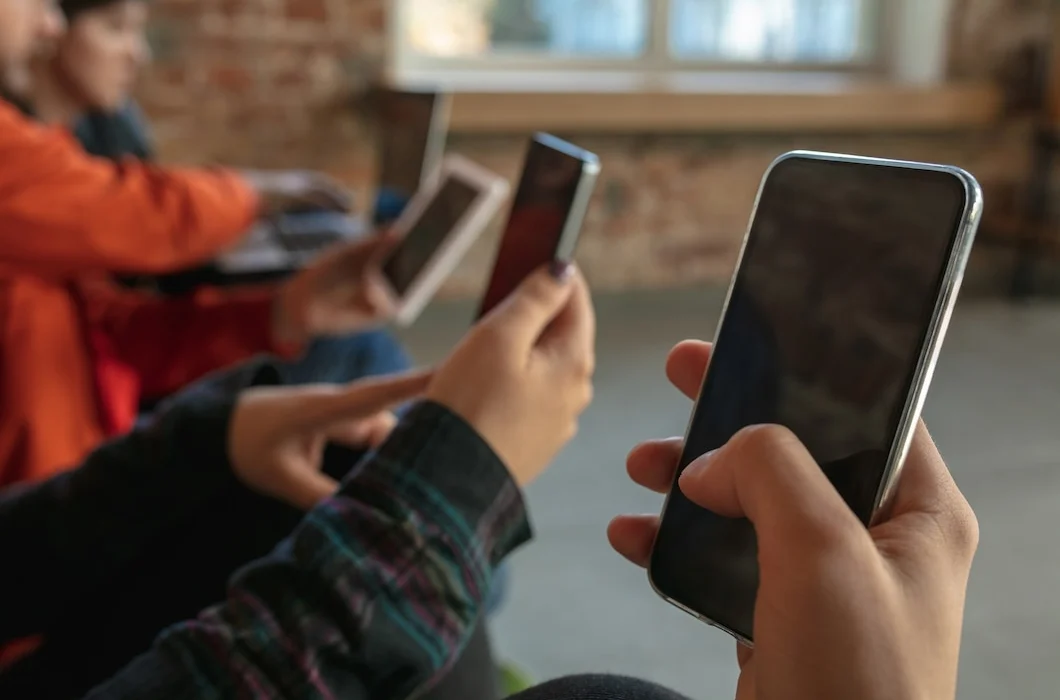Introduction:
One of the biggest issues facing schools today is the prevalence of cell phones, which 97% of students own by the age of 12.1 Mobile phones pose a risk of needless distraction, disruption, and diversion. 2 One in three secondary school students report that their phones are used in most classes without permission.
This not only causes distraction for the individual student using the phone. But it also disrupts the lesson for the entire class and takes teachers’ attention away from educational tasks.
Some statistics regarding mobile phone usage exist, such as the research saying that 97% of kids have a smartphone by the time they are 12 years old, but using them in class can cause disruptions, distractions, and a higher chance of cyberbullying.
To help kids concentrate on their studies and the friends and staff around them. However, many schools have implemented policies that forbid using phones in the classroom.
Therefore, particular guidelines are published which should be adopted by schools. More students may take advantage of the benefits of a phone-free classroom.
Here’s everything you need to know. Nursing Assignment Writers UK has done immense research on this cause. Which helps me a lot to generate this piece of information.
Do You Forbid Cell Phones In Classrooms?
According to the new guidelines, schools should forbid students from using cell phones. But they will be free to decide how to implement this policy.
Some may let students bring their phones on campus. But they must not be used during classes or playtime.
This puts England in step with France, Italy, and Portugal, among other nations that have implemented laws along similar lines.
Does This Apply To Every Student?
According to the guidelines, there will be a few specific instances in which students should be excused from the requirement.
Some students require their phones for medical reasons, special education needs, or impairments, even though most students will not be permitted to use them in class.
How Would Banning Cell Phones In Classrooms Operate?
Schools will be free to select a mobile phone ban strategy that works for them.
This can be putting phones away, turning them in when you go to school, or prohibiting them from being on school property.
What More Are You Doing To Enhance Behaviour At School?
By helping up to 700 schools improve their conduct over three years. However, we are spending £10 million to conduct Hubs nationwide.
Therefore, Behaviour Hubs facilitate close collaboration between schools that aspire to improve their behaviour and those with excellent positive behaviour cultures.
England Ban The Use Of Mobile Phones In Schools:
The Usage Of Mobile Phones In Schools In England:
According to an official statement, as part of a campaign to”minimise disruption and improve behaviour in classrooms,” schools in England have received new guidance to outlaw cell phone use during school hours.
The administration said that the move would guarantee a uniform approach and that numerous schools have already prohibited phones in a statement issued by the Department of Education on Monday.
According to Ofcom, the UK’s communications regulator, 97% of children own a cell phone by age twelve. The organisation states that using a cell phone in class can lead to distractions, disruptions, and cyberbullying, resulting in lost instructional time.
UNESCO Demanded A Smartphone Ban:
UNESCO demanded a smartphone ban in schools last year, which finds evidence linking cell phones to worse academic achievement and detrimental effects on children’s wellness from excessive screen time.
With examples of various strategies, such as removing phones from school property, turning in phones upon arrival, and keeping phones safely locked away at school, schools will be encouraged to forbid the use of cell phones.
Cell phones are, at the very least, an unwelcome distraction in the classroom, according to Education Secretary Gillian Keegan. Who stated that schools are places where children learn.
Some Statements Made By Different Departments:
“We are providing our dedicated educators with the means to address behaviour issues and enable them to focus on their primary teaching role,” stated Keegan.
According to Technology Secretary Michelle Donelan, children’s education and well-being should not be sacrificed for technology’s benefits.
“To make the UK the most secure environment in the world for young people to use the internet, we have passed world-class legislation.”Withtoday’snews, parents and educators will have even more support in helping the next generation reach its full potential.
What Government Data Said:
According to the most recent government data, approximately 29% of secondary school pupils acknowledged using their phones during classes when they weren’t supposed to.
According to the Department of Education, schools have had success banning cell phones by using strategies like giving kids lockers with charging stations to ensure they don’t enter the classroom.
The Special Initiative Taken By Schools:
“After implementing this modification, a school mentioned in the guidelines experienced an immediate beneficial impact, and within a year, the school’s entire culture had transformed.
Students may learn in a relaxed and focused atmosphere without cell phone access. Also, teachers can concentrate in peace.
England will follow the lead of other nations like France, Italy, and Portugal by making the change. Restrictions have been imposed on the use of cell phones.




 UK Cities
UK Cities